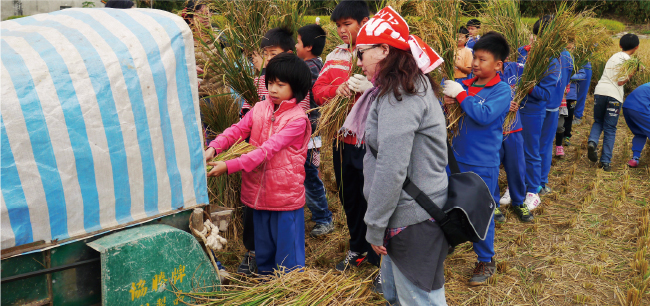5. Food and Agricultural Education
As climate change intensifies, the wisdom of traditional sustainable agriculture and land use is gaining currency; it is now supported by UNESCO and has been placed into the agenda of national development by many countries. Nevertheless, the paradigm shift of agriculture is still a difficult task under the globalization of free trade and industrialization of agriculture. Thus, for the past decade, agricultural innovators have realized that people’s cognitive modification can create a greater turnover and reform depending on changes in public cognition and opinion. The Food and Agricultural Education (FAE) Act has raised people’s awareness of food and changed food-producer mindsets by implementing the “learning by doing” approach, based on the joint-participation of both producer and consumer; the act was an important force that facilitated the paradigm shift. This panel aims to consider, under the impact of climate change, how FAE responds to the requirements of food ethics. Regarding the above purpose, we welcome researches and discussions covering the following diverse aspects: the philosophy of FAE, the theory and methodology of FAE, the practice of FAE among campus/life field/food chains, FAE policies and the political economics in food production, FAE in agricultural/food cultural heritage inheritance and related subjects.
食農教育
隨著氣候變異加劇,永續農業與土地經營的傳統智慧受到提倡,甚至受到聯合國教科文組織(UNESCO)的支持或被許多國家列入發展的議程。然而,在自由貿易與工業化農業全球擴張的趨勢下,農業的典範轉移仍是一個艱巨的工程。因此,近十年來,農業革新者認識到,更大的翻轉與改革有賴民眾的認知改變,而食農教育透過從做中學的方式,食物的生產者與消費者共同參與,提升民眾對食物的了解及生產者的意識改變,被視為是促成典範轉移的重要力量。本子題的主旨是思索在氣候變遷的背景下,食農教育如何回應食物倫理的要求;圍繞此一主旨,歡迎來自以下多元向度的研究討論:食農教育的哲學;食農教育的理論與方法論;校園/生活場域/食物供應鏈中的食農教育實踐;食農教育政策與糧食生產的政治經濟學;食農教育與農業/飲食文化資產承繼等相關議題。
責任編輯
張瑋琦/國立清華大學環境與文化資源學系副教授
編輯委員
簡妤儒/國立臺灣大學社會學系助理教授
蔡嫦娟/朝陽科技大學幼兒保育系助理教授


